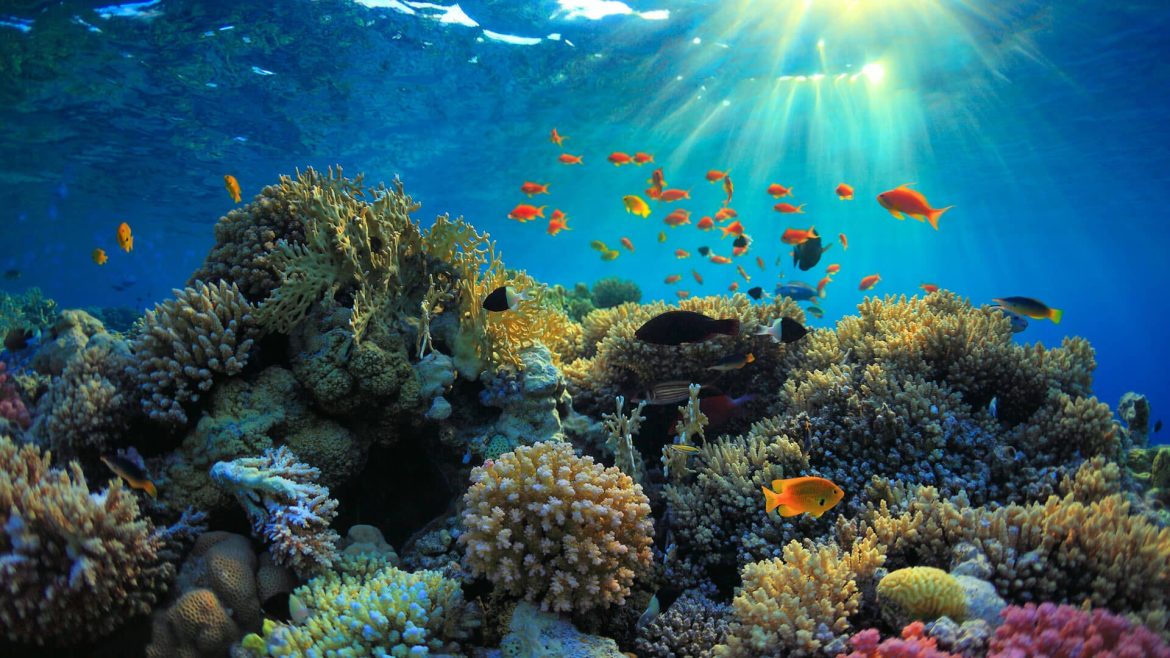As the most widespread coral bleaching event on record pushes the world’s reefs toward an ecological tipping point, a coalition of government and philanthropic partners has announced over US$25 million in new contributions to the Global Fund for Coral Reefs (GFCR) at the United Nations Ocean Conference (UNOC3).
This wave of support—from the Governments of the United Kingdom, New Zealand, France, and Germany, alongside renewed commitments from Builders Vision and UBS Optimus Foundation—comes at a make-or-break moment for the planet’s coral ecosystems and the more than one billion people who rely on them for food security, livelihoods, and coastal protection. It also marks a meaningful step forward in the GFCR’s final capitalisation effort, launched at COP16 in Cali, Colombia. These contributions reflect the leadership of a small but determined group responding to one of the world’s most urgent ecological crises.
“Coral reefs are central to the lives and livelihoods of Pacific communities. It is critical that we work together to do all we can to protect coral reefs, while strengthening Pacific resilience,” said Rt Hon Winston Peters, New Zealand’s Minister of Foreign Affairs. “New Zealand is a proud supporter of the Global Fund for Coral Reefs. In June 2024, we provided US$10 million to the Global Fund for Coral Reefs to support its activities through to 2030. We encourage others to do the same.”
“Coral reefs face an urgent crisis, endangering millions of livelihoods and the health of our marine ecosystems. Immediate action is critical. Norway will contribute 20 million Norwegian Kroner (NOK) to the Global Fund for Coral Reefs. The Fund demonstrates how we can leverage public contributions to de-risk investments in coral reef protection and restoration, unlocking the substantially larger private sector financing needed to address this global emergency,” said Minister of International Development of Norway, H.E. Åsmund Grøver Aukrust.
“Our precious marine animals and habitats have been under threat for too long,” said the Rt Hon Steve Reed OBE MP, Secretary of State for Environment, Food and Rural Affairs of the United Kingdom. We are proud that the UK’s £4m contribution to the Global Fund for Coral Reefs will support these critical marine ecosystems and help secure a sustainable future for coral reefs, and the communities that depend on them, across the globe.”
“Builders Vision is proud to deepen our partnership with the Global Fund for Coral Reefs, bringing our total commitment to $12.5 million across grant and investment funding. Coral reefs are vital to biodiversity, coastal protection, and the livelihoods of millions. GFCR offers a model that unlocks capital across a wide spectrum of projects, from community-driven solutions that often lack access to traditional capital to commercial-scale investments that need catalytic support to transition toward sustainability,” said Peter Bryant, Program Director, Oceans, Builders Vision.
The urgency is stark. The fourth global coral bleaching event—now affecting an estimated 84 percent of the world’s reefs—is being driven by record-breaking marine heatwaves and prolonged thermal stress. Without swift intervention, scientists warn of irreversible coral mortality, with serious consequences for both biodiversity and the coastal economies that depend on reef ecosystems.
While the funding announced at UNOC3 represents meaningful progress, the gap to meet the GFCR’s 2030 targets remains significant. Substantially more capital will be required to scale locally led investments and unlock private finance for long-term reef resilience.
“Amid declining official development assistance and growing economic pressures, these renewed commitments from Member States and philanthropies are especially significant,” said Pradeep Kurukulasuriya, Executive Secretary of UNCDF, UN’s capital providing fund that serves first and foremost the least developed countries and other vulnerable nations, as set out by the UN General Assembly resolution of 1974. “They show that progress is possible—even in constrained environments. The United Nations Capital Development Fund, through the Global Fund for Coral Reefs, is already demonstrating how blended finance can deliver impact at scale, de-risking blue markets and catalysing capital for investment. But to meet the urgency of this moment, we need more donors and investors to step forward to ignite broader, faster, and more ambitious action.”
The Fund’s blended finance model has already supported more than 100 reef-positive enterprises and enabled sustainable financing for over 10 million hectares of marine and coastal ecosystems—including approximately 5 percent of the planet’s remaining coral reefs. As part of this portfolio, GFCR and UNCDF announced at UNOC the launch of a US$1 million portfolio guarantee facility to support reef-positive enterprises in Papua New Guinea. Structured in partnership with Women’s Micro Bank and UNDP, the facility will unlock over PGK 5.7 million in loans for sustainable, women-led MSMEs that strengthen reef and community resilience. By 2030, the GFCR aims to catalyse over 400 reef-positive businesses and sustainable financing mechanisms, protect at least 12 percent of global coral reefs, and leverage up to US$3 billion in finance.
“Coral reefs are integral to our way of life and cultural identity. Without urgent action, they are rapidly heading towards extinction,” said H.E. Surangel S. Whipps, Jr. President of the Republic of Palau. “The Global Fund for Coral Reefs has been an invaluable partner in our efforts to protect this crucial resource and act as a vital shield against storm surges, coastal erosion, and other climate-related threats. To maximize the impact of this funding, streamlined access is essential. I urge member states, philanthropic organizations, and impact investors to increase their support to help GFCR achieve its urgent 2030 goals for coral protection and community resilience.”
As global attention turns to ocean health and coastal resilience at UNOC3, the path forward is clear: the time to act is now. The world’s coral reefs—and the communities that depend on them—cannot afford to wait.



